For most invasive medical treatments, a medical practitioner needs to have consent from the patient before administering that treatment. This includes cosmetic procedures, such as Botox injections. They must also make sure the patient is adequately informed of any risks, alternatives, and reasons why that treatment will be beneficial to them. This is done using the Botox Patient Consent Form.
Free Consent Forms
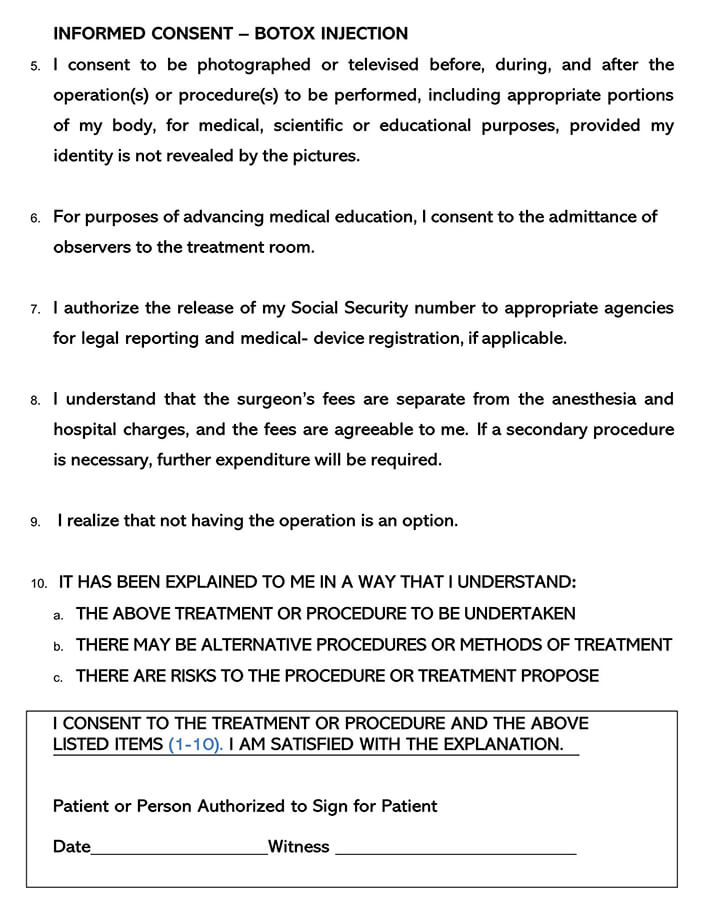
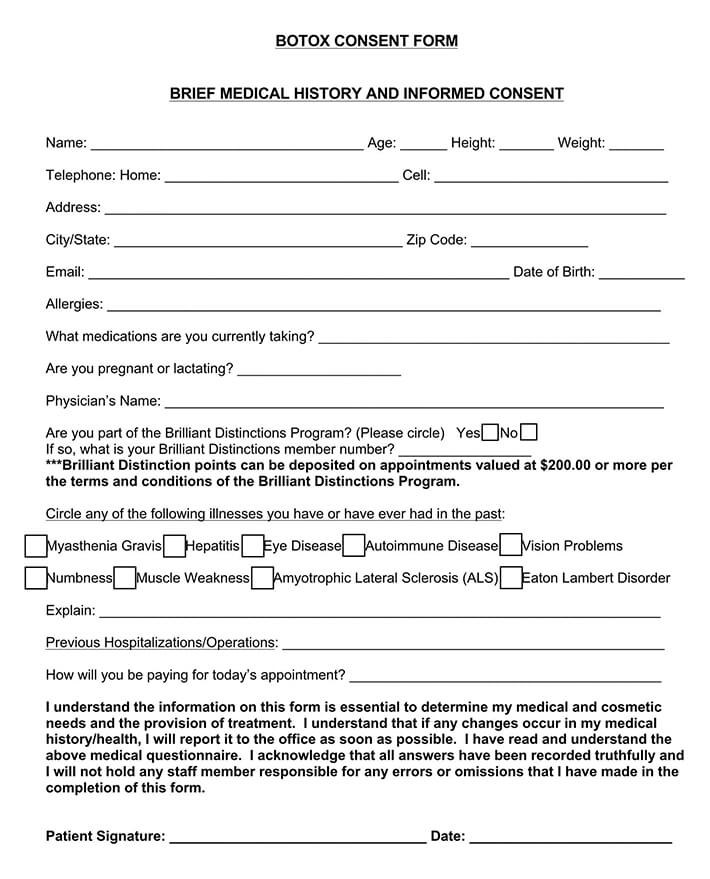
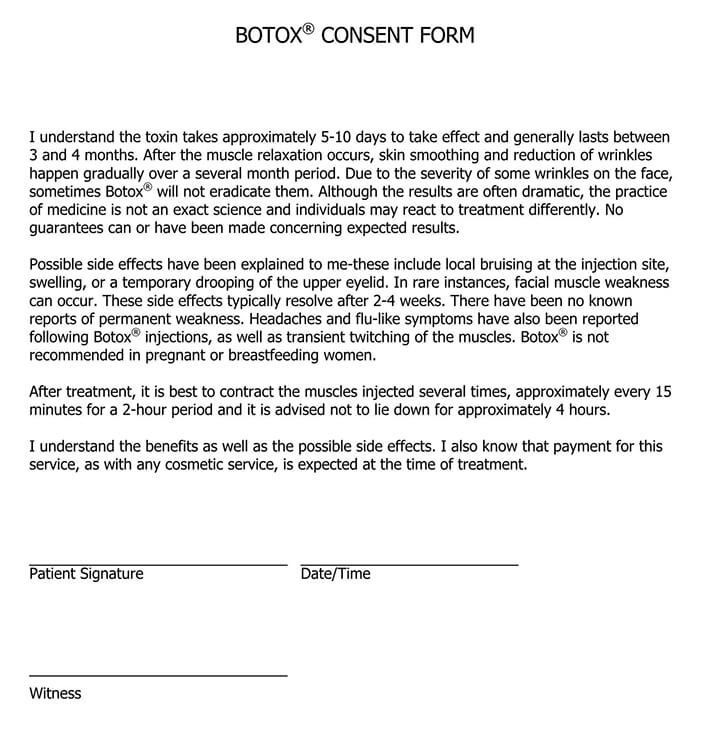
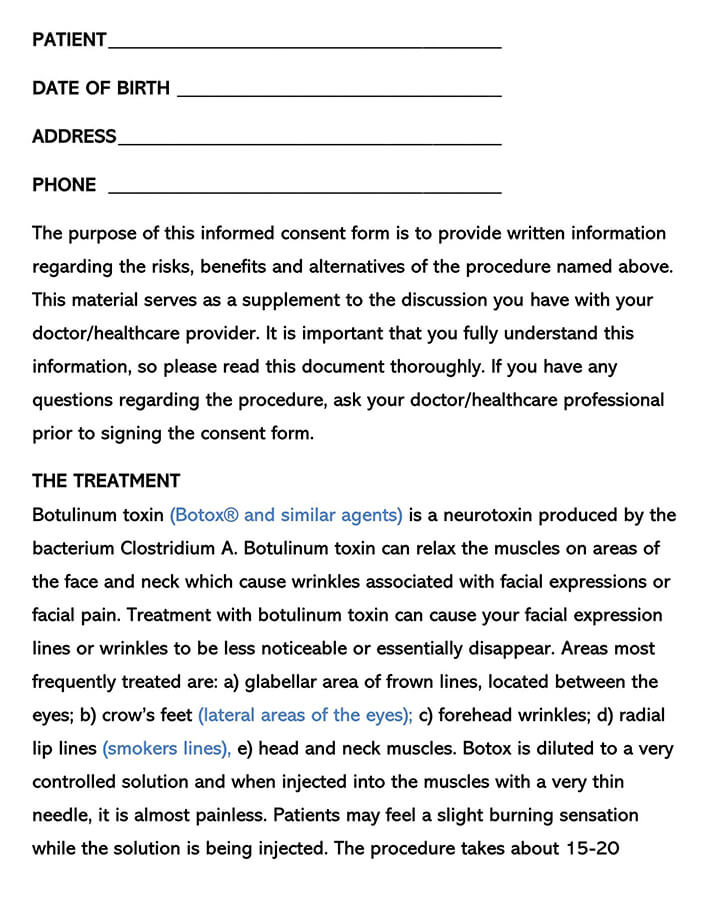
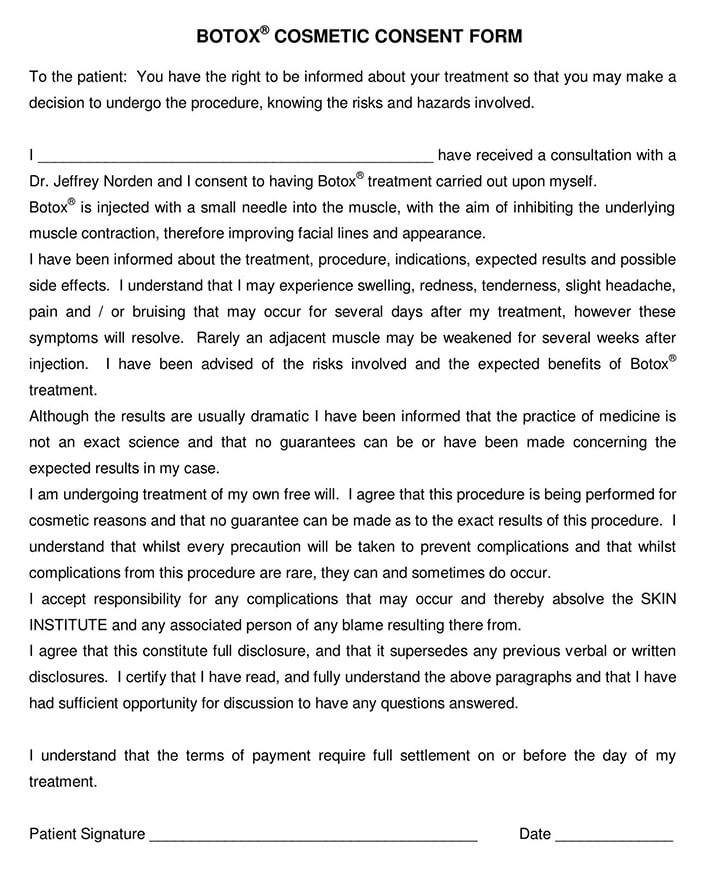
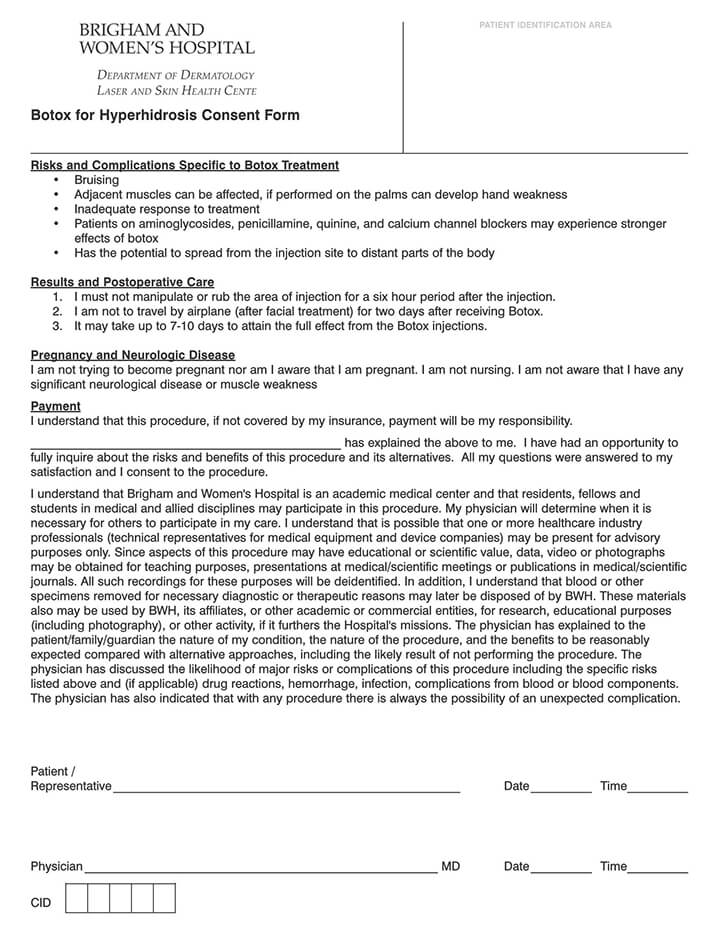
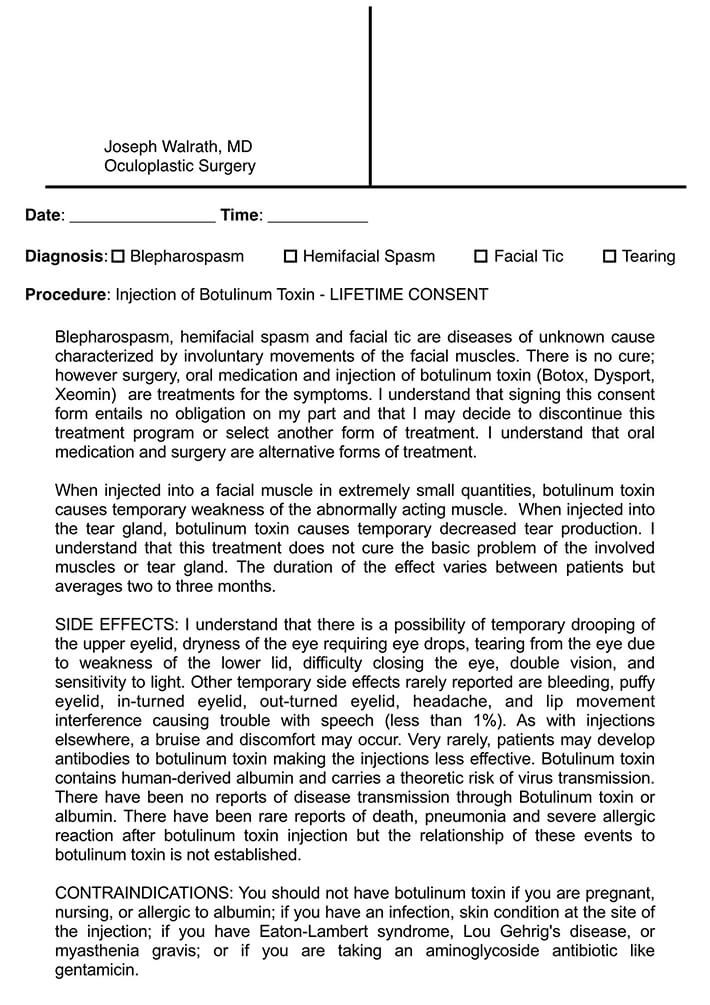
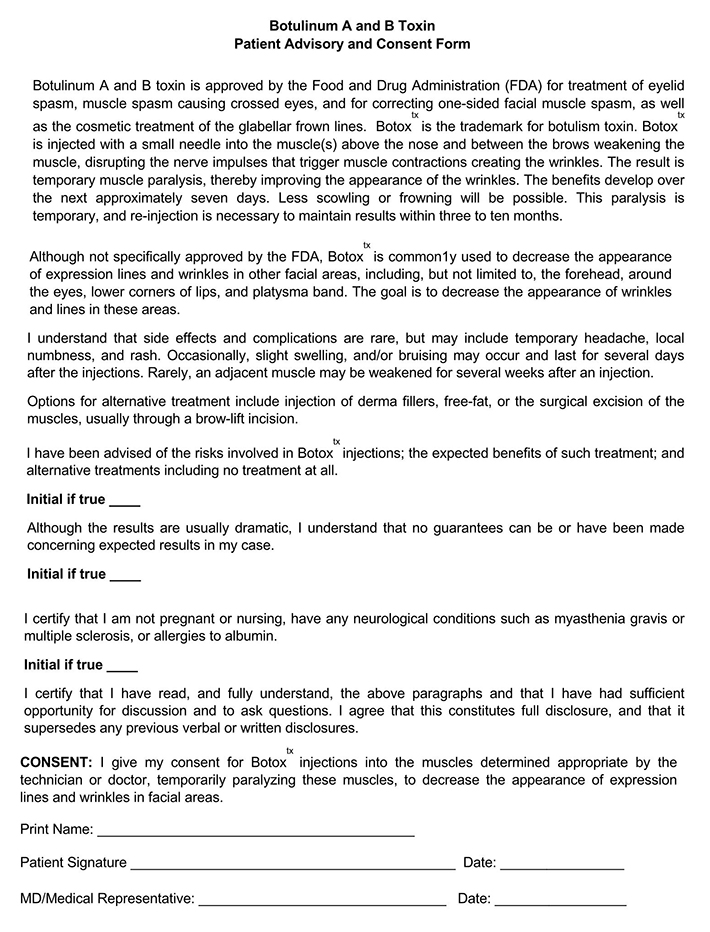
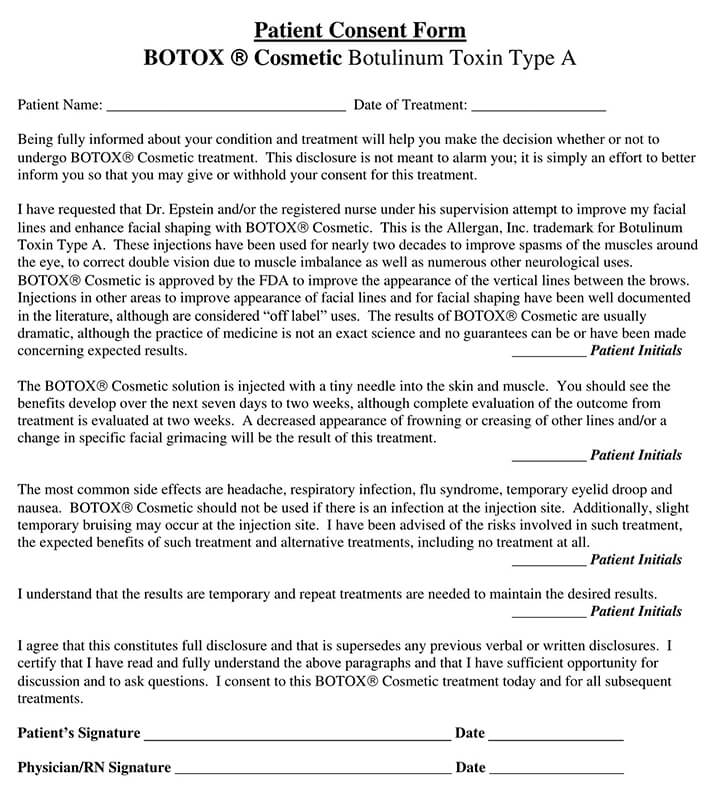
What is a Botox Patient Consent Form?
A Botox Patient Consent Form is a document that a patient signs off on to give consent to having treatment done.
It needs to have specific information on it that explains to the patient what the cosmetic procedure is, what the potential risks, side effects, or complications are, and any financial requirements. Once signed by the patient, it is a legally binding document that allows the practitioner to proceed with the treatment.
Using a Botox Patient Consent Form
The consent form should be used during the first consultation regarding the treatment. This allows the practitioner and patient to go over each area carefully, enables the patient to ask questions, and ensures that the patient fully understands what they are consenting to.
There are some specific things relating to the treatment that a patient must be informed of. The first is explaining to the patient what Botox is. Also known as botulinum toxin, it is essential that the patient be made aware of what it is and how it will be administered. They also need to be informed of how effective it is and how long the effects of treatment will last.
Risks, side effects, and complications should also be clearly outlined. While the consent form may not list all side effects, the most common side effects that can occur with this treatment should be mentioned, such as:
- Nausea
- Bruising
- Flu-like symptoms
- General overall body weakness
- Headache
- Developing antibodies to BOTOX
- The permanent loss of muscle tone (as a result of repeated injections)
- Trouble breathing
- Facial asymmetry (when one side of the face looks different from the other)
- The inability to speak
- Under correction or overcorrection
- Paralysis of muscles near the treated area, some of which can cause droopy eyelid, double vision, inability to close the eye, and inability to pucker the lips to whistle or drink from a straw
Why a Botox Consent Form Should be Used
The consent form is essential in informing the patient of all necessary details of the procedure, in order for them to make an educated decision as to consent to the procedure or not. It also protects the practitioner from liability. If complications arise after treatment, a clinic or physician could have a lawsuit brought against them for not properly informing the patient of side effects and complications.
It is also a means of documenting the patient’s information; both identify the patient receiving the treatment and any prescriptions they are taking and allergies the patient may have to medications and anesthetics.
It’s also a means of documenting the responsibilities and obligations of both the patient and the physician. Things like payments to be made and fees to be charged should be mentioned as well.
Botox Consent Form Varieties
There are several types of Consent Forms:
- Consent and Medical History Form: This is usually a 5-page form that records the patient’s details and their medical history. Patients must tell the physician about any illnesses, diseases, previous hospitalization, and their preferred method of payment for the procedure. It also goes over the details of consent and the procedure, any pre and post-treatment instructions that the patient must follow, and the clinic’s policies.
- Cosmetic Consent Form: This is a much shorter form that only needs the patient’s basic details, their signature, and the date it was signed. It is usually used when explaining to the patient what Botox is. It further states that the patient has chosen to undertake the treatment of their own free will and that they accept the responsibility for dealing with any after-procedure complications.
- Hyperhidrosis Consent Form: This one will go over the risks, complications, results expected, whether the patient is pregnant, what postoperative care will be needed, and any type of neurological disease the patient may have. Since this type of procedure is normally not covered by insurance companies, the form also outlines the patient’s responsibility to pay for treatment.
- Injection Consent Form: The details of the physician doing the procedure are documented in this one. It contains the type of procedure and the name of the information sheet that was presented to the patient.
- Lifetime Consent Form: This will give the physician consent to administer procedures and treatments for the whole of a patient’s life. It is used for patients who have muscle issues and spasms that are incurable.
Frequently Asked Questions
Consent is needed for any Botox treatment, regardless of whether it is for a minor or an adult. For minors, however, the consent of their parent or guardian is also needed.
Botox treatments can be used on children who are as young as 12 for some medical conditions, like facial spasms. The FDA has approved it as a therapeutic treatment.










